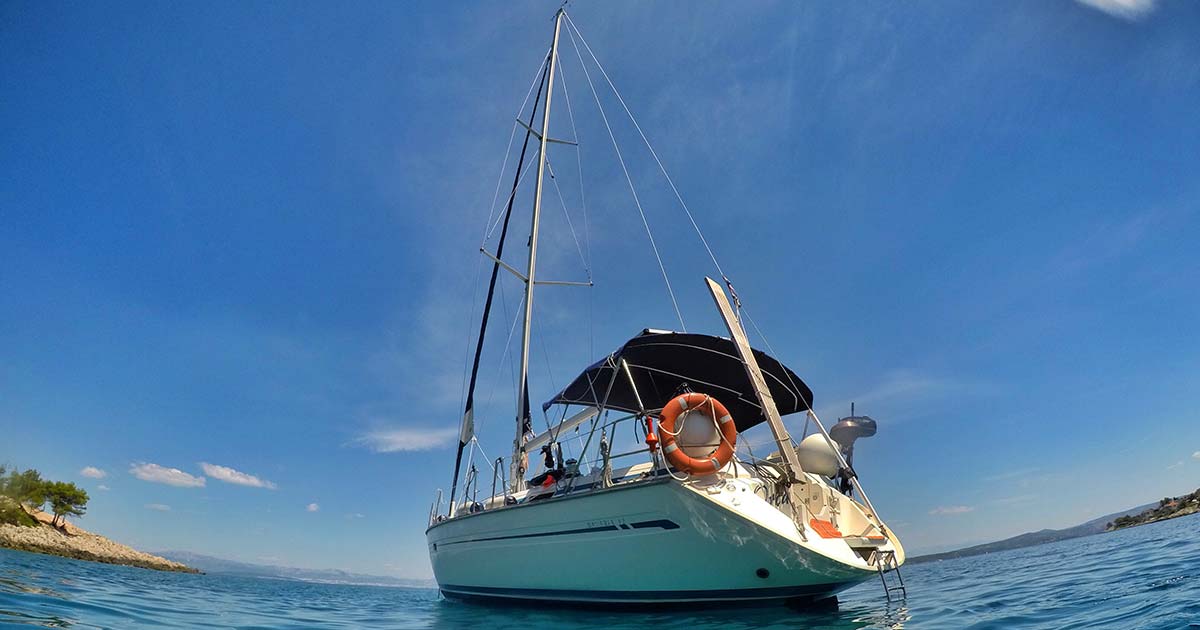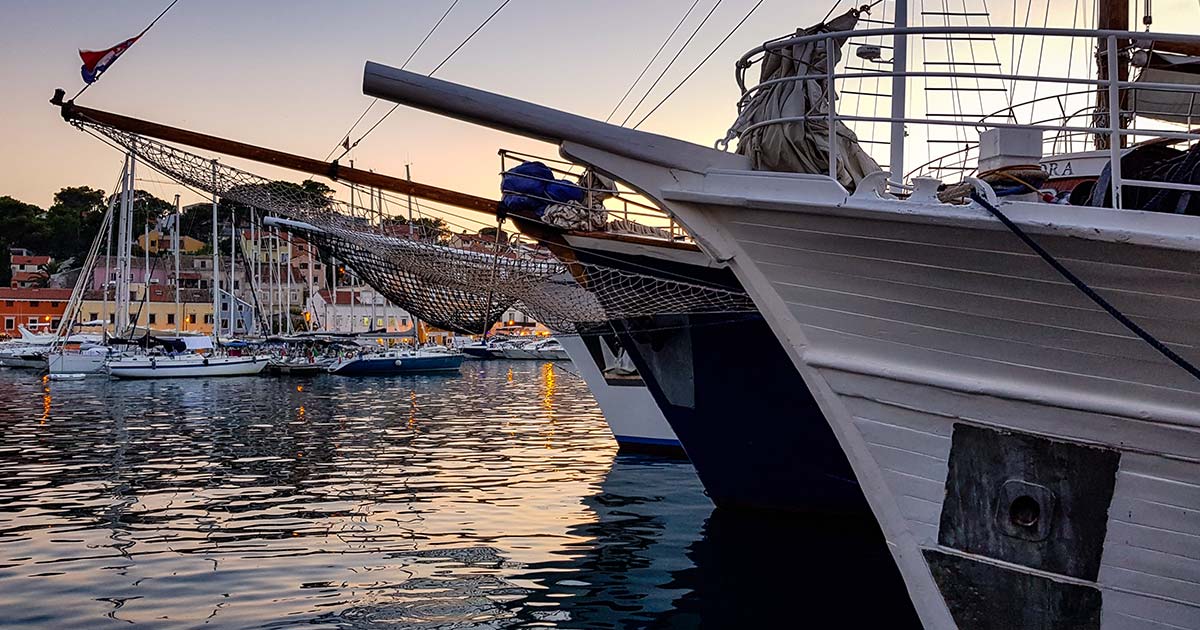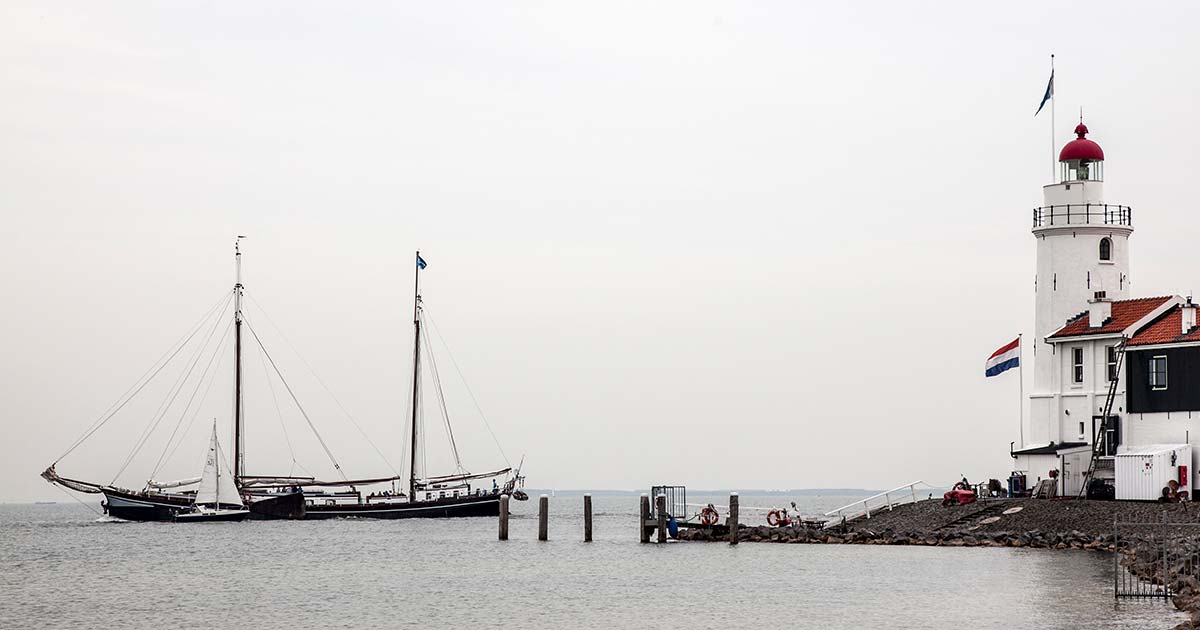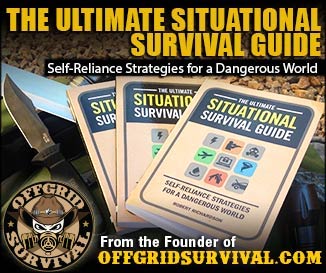
Living on a boat is a unique off the grid lifestyle that has intrigued adventuring souls for ages. For some, it’s an escape from the repetitiveness of everyday life; for others, it’s simply about the freedom and adventure that living on the water can bring. Regardless of the reason, living on a boat requires a certain level of dedication, preparation, and willingness to embrace a different lifestyle.
Considerations for Those Who want to Live on a Boat
First and foremost, before choosing to live on a boat, it is vital to consider the practical and financial implications of such a decision. The daily cost of living on a boat varies significantly depending on factors such as type, size, age, and vessel location. For example, the upfront expenses of purchasing a new or used boat can range anywhere from a few thousand dollars to multi-million-dollar yachts. It is essential to factor in the cost of upkeep, including maintenance, fuel, insurance, and dockage fees. Moreover, living in a marina or dock adds to the overall cost, along with utilities such as electricity, water, and internet services.
The type of boat also plays a role in determining the level of comfort and amenities available. While some boats offer basic essentials, such as a bed, bathroom, and kitchenette, others offer lavish living spaces with high-end appliances, spacious bedrooms, and panoramic views of the water. However, with luxury comes added expenses and maintenance, which may not be feasible for everyone.
Give it a test run!
Before setting sail, it’s important to understand the lifestyle and figure out if you can actually handle living on the sea. The first thing you should do is choose a marina that you can live in for 3 – 6 months. This is an important step to mentally and physically preparing to live at sea. Your body needs time to adjust, and your mind needs time to become accustom to this new way of living.
If you’ve determined that this is the lifestyle you want to live, then there are some steps that you need to take.
Research Thoroughly: Before making any decisions, conduct extensive research on the type of boat, equipment, and amenities that you’ll need to live on a boat, along with the costs and regulations in your area. Talk to people who have experience living on a boat and seek their advice on the challenges and benefits of a boat lifestyle.
Be Mindful of Safety: Living on the water requires that safety be a top priority. Make sure you have a sufficient safety plan in place, including proper safety equipment, navigation equipment, and a thorough understanding of boating safety regulations.
Prepare for Living on a Small Space: Living on a boat requires adapting to living in a much smaller space. You’ll need to downsize and maximize storage capacity, creatively arranging furniture, and appliances to make the most out of the limited space. Selecting multi-functional furniture such as a sofa bed or a wall-mounted foldable table can be an excellent way to save space.
Learn Boating Skills: Before living on a boat, it is essential to learn the fundamentals of boating, including how to navigate, steer and dock the vessel. Take a boating safety course, read boating books or watch tutorials online, and consider hiring a professional
Choosing a Boat

Research, Research, Research. When choosing a boat, don’t jump right into the first cheap one that you find on craigslist. The upkeep on these things can be incredibly expensive, and if you don’t know what you’re doing you could be in for some unwelcome surprises.
When choosing a boat you should consider the following things:
- When considering how much to spend on a boat, take the amount that you are willing to pay and subtract about 30%. You will want that extra 30% for any maintenance issues that may pop up.
- Check for Leaks – Before purchasing a boat, do a thorough inspection to check for leaks. Any leaks need to be taken care of right away. Mold will become a huge problem, and can make your boat unlivable if left unchecked.
- Mold – Mold can be a problem so make sure you check the boat for signs of mold.
Where to Dock

Anchoring. Anchoring or ‘living on the hook’ is going to be your cheapest option, but it also means that you’ll have to be fully self-sufficient. To be able to pull this type of living off, you must.
- Have a way to generate your own electricity (solar wind etc…)
- Have a way to store enough water, or be able to generate your own drinking water.
- Be mentally and physically prepared to live at sea.
- Buy a good dinghy for coming to shore for work, supplies, etc.
Mooring. Another cheap option is called mooring. A mooring ball is a method of anchoring your boat without an anchor. It works by attaching your boat to a chain that’s attached to a heavy sunken cement block. There is usually an initial deposit or setup fee and a small monthly fee is usually involved.
Marina Living – Depending on the location, this option can be pretty similar to an RV Park. A growing number of Marinas offer electrical hookups and supply stores within walking distance of your boat.
We highly recommend Marina living for those who are just starting out. Before setting sail, marina living can help make sure you’re able to handle the lifestyle. Choose a marina that you can live at for 3 – 6 months. This is a crucial step to mentally and physically preparing to live at sea.
Local Laws: Another critical aspect to keep in mind is the boating regulations and laws in the area where you plan to dock or sail. Each state or country has its own set of rules and restrictions, including licensing requirements, zoning laws, and boating safety regulations. Furthermore, the weather and tide conditions can significantly affect your comfort and safety on a boat, and it’s essential to be mindful of such factors.
Safety Considerations

This type of lifestyle is filled with hazards. While it is enjoyable and liberating, if unprepared it can quickly become a nightmare.
- Pirates – Believe it or not, in certain parts of the world this is still a pretty big problem. Make sure you have the proper equipment to be able to defend yourself in case of attack. (SHOTGUN!)
- Make sure you know what you’re doing! – If you are not familiar with boating, you should take at least 6 months of time to cruise around the shore. I highly recommend taking lessons and becoming familiar with your boat before sailing off into the sunset.
- Communications – Cell phones when near shore, satellite communications, a marine radio, and a Ham Radio should all be on the top of your list of considerations.
- Boats require a lot of maintenance. Make sure you know the ins and outs of your boat, and how to troubleshoot anything that might go wrong when you’re out at sea.
The Benefits of Boat Living
Despite the challenges and considerations, living on a boat can offer many benefits, such as increased freedom, privacy, and the joy to explore different locations. Here are some of the advantages of living on a boat that may appeal to you:
Minimalist Lifestyle: Living on a boat requires downsizing and simplifying your possessions, making it an ideal choice for those who yearn to live with less. The limited space on a boat forces you to make do with what you have, and prioritize what’s essential. This approach encourages a minimalist lifestyle and helps to declutter your life.
Close Connection with Nature: Living on a boat provides a unique opportunity to be surrounded by nature, including stunning sunsets, calm waters, and wildlife. The sound of water lapping against the hull of the boat can be a relaxing and therapeutic experience, helping you to disconnect from the stresses of everyday life.
Ability to Travel and Explore: One of the most significant advantages of living on a boat is the ability to travel and explore different locations. Whether you want to cruise down the coastline or navigate through canals and rivers, living on a boat offers unparalleled freedom and adventure.
Affordability: Living on a boat can be more affordable than traditional housing, depending on the type of boat and location. While the upfront cost may be higher, the ongoing expenses can be lower compared to a mortgage or rent.
Sense of Community: Living in a marina or dock offers the opportunity to become part of a community of like-minded individuals who share a passion for all things boating. The sense of camaraderie and socialization can be a significant factor for those who crave a close-knit neighborhood or environment.
Check out our Off the Grid section for more unconventional and alternative ways of living.






Ft Myers Has one on the River across from downtown
I don’t know the name. I found it by googling. Tampa & Sarasota also. I Know theres a mooring field in Sarasota. Bon Chance
I am an over the road trucker for 20 years and I have heard it all! From prostitutes to thieves to faulty workshops botching up a repair job, and I have learned a lot traveling the US every single day for the 20 years. Most of what I see in this thread is directly related to my lifestyle. I live in a cramped environment and I am leery of ANYONE who hangs around my truck. I stay where I know it to be safe and I don’t mess around with places that I don’t know about. ITS ALL ABOUT COMMON SENSE. If you don’t have mechanical ability and you have low funds in the bank, then stay off the boat. There have been numerous people who have travelled the globe on a boat (The Pardey’s come to mind first) without an engine, and living in a 25 +/- foot sailboat made of wood. It’s a different lifestyle, but its definitely doable. If you don’t have street smarts and you have no money in the bank, then stay out of this lifestyle. Money will save you in most situations, but knowing who to pal with and who to stay away from is KEY to traveling and I don’t care how you are traveling, be it by motorcycle, boat, car, plane, or blimp. You must be street savvy to get around. A moron will screw up anything, so the more learned you are and the more able-bodied you are, the more likely it will be for you to succeed.
Just like my truck, the nicer the boat, the more attention it will draw, so the shabbier the boat, the less likely the chance for vandals to come aboard. I don’t like to live like a pig, but its safer when you are low on funds.
My current truck costs 300K and I wont leave it for a second somewhere that I don’t trust it to be watched while I am gone.
Meanwhile my old 20K truck, I would park in East LA for the week and not worry one second about it. No one would touch it or come near it, and even if they burnt it to the ground while I was gone, it was only 20K! I could replace it tomorrow.
You could get a 3K boat and fit it out to get you around and replace the whole thing every year if you wanted to. OR, you could get a 300K yacht and be financially strapped, and constantly worried about anyone breaking in while you are ashore. It’s all relative.
If you want to travel, don’t expect everyone to be onboard with your dreams. In fact don’t expect ANYONE to be onboard with you. Just go out and do it after you have done research. Rent a boat and take it out first. Unless you can just throw the thing away when you are tired of it, you need to do your homework. Renting is the best way to get your feet wet.
There is a cool website where you can rent other people’s boats (Like bareboat charter) Boat Rental Peer to Peer is like Air BNB.
Find something that is reliable and will do what you want it to do. I was just reading about this guy who sank his 30 foot sailboat off the coast of South Carolina on his maiden voyage to the Caribbean. My first thought was that he did no homework and didn’t belong at the helm of that boat. Just because you can , doesn’t mean you should.
If you want to live on a boat in a marina, then you will have less stress than someone who is actively using the boat to travel the world. Like I said, its all common sense and I have seen Truck drivers who operate 80K lbs. vehicles who didn’t know how to change a headlight. They eventually crash the truck or quit because they have no business being out in the world. That is what sets the people apart from the ones who successfully travel on their own and the ones who end up in jail, or sunk at sea, or dead. Every time there is a story of some capsized boat, or pirates taking someone hostage, or some other horrific tale, other than just dealing with the ocean, it is usually because the person or people didn’t take every precaution available and didn’t do their due diligence.
Check out Lin and Larry Pardey if you want a prime example of someone who has travelled the world with only their wits, common sense, and personal ability.
Would like to know do I need to give up my pets to live on a boat have one dog and 4 parrots. Some of you talk about cheep boats have not had any luck finding one of these were do I look. Also am a air conditioner tech could I pick up some extra work at docking areas
We don’t need no more greenhorn hazard-to-navigations clogging our channels and anchorages. Its a hard life, buy a backpack and a bike and stay on land with the other lubbers.
Living on a boat can be one of the best ways to live independently – if you know what you are getting into – and IF you can handle it. Personally my wife and I have lived aboard a 39′ boat for a year and in a 35′ travel trailer for another year. I greatly prefer living on a boat. There are many consideration to make including your family if you have one and what they are willing and able to handle. You may love living on a boat – they may hate it. To me an ideal boat to live aboard if 40 to 65 feet in length, though others will work too. I currently own a 31 foot Chris Craft that I am rebuilding and I could actually live on it quite comfortably, if need be, because it is very effieciently designed. Its also fiberglass.
If you are new to boats here is your first lesson – buy a fiberglass boat. Wooden boats are wonderful – but they are problematic especially if you are a novice and they can be expensive. Im talking about old wooden hulled (planked) boats built in the 60’s and earlier. Fiberglass boats are a much better choice for a live aboard. Above all else make sure the hull and all through hull fitting are in good condition as well as all hoses connected to such fittings. Above the water line make sure there are no leaks around hatches, windows, vents or anywhere else.
If you plan to cruise a lot then diesel engines are safer. Gas can be safe but requires extra attention to detail unless you want to blow your boat up along with yourself in the process. Many do. Power boats have more living space than sail boats in general. They also have shallower drafts allowing them in to areas to anchor that sail boats can never go – an important consideration if you plan to live on the hook.
People talk about anchoring out to live and using a small boat to go ashore and work shop etc. This is possible and people do it all the time. Unfortunaely they sometimes return to find their boat has slipped her anchor and is now run aground or into another vesel, bridge etc. or worse – or is now on the bottom. I think someone capable of handling the boat should always be aboard if it is anchored – otherwise tie it up to a dock. Just my opinion… do as you wish but consider the risk in making your own decision.
I have often dreamed of living aboard a very large house boat built on a barge hull. Somthing about 70 feet long by about 24 feet wide, with three levels above the main deck – the first on the main deck taking up most of the deck space and housing the main living areas, then the deck above that being smaller yet still good sized and housing the owners quarters, and finally a small deck house or bridge on top of that. It would look somewhat like old river boats of long ago.
The hull – in this case, would be steel. Then she would have mooring stations aft and port and starboard for smaller boats.
Just a thought.
Personally I love all kinds of human habitats large and small, floating or fixed or even on wheels. The big trick is choosing the right one for you and yours at a given point in your life.
Good luck in your journey.
I have heard it said, “You will spend what you have to spend”. If you have $4,000 a month to spend you will spend it, if you have $500 a month to spend you will spend it.
Not all of us. I’ve been wanting a sailing catamaran for decades, have recently paid off my modest house near the beach, and have almost saved enough to purchase the cat for cash. Just don’t spend more than you have to, don’t live in too much house, and pay cash.
I have spent my original purchase price again on maintenance and improvements since starting this way of life and it is still way cheaper than living ashore. My personal choice was a 1974 35′ winterised catamaran, it has enough space for me, it is heavily built fibreglass, it is warm, sure footed, and tough like me, with a 150watt solar panel, wind Genny, fuel Genny and good heating. As for weapons…Air rifle, Speargun, big stick, machete, a variety of knifes and a winning smile…
Maintenance is the key to keeping your dream afloat, you must be or learn to be self reliant, if you need to employ ‘experts’ to carry out jobs it will cost you a fortune. Learn how to do everything. Regarding moorings, if you buy a shallow drafted boat with legs, a cat or a bilge keeler you can reach hidden creeks and mud berths or find struggling land owners or marinas that are very cheap . This life gets easier with time, when you know your boat inside and out, when you know yourself in this life inside and out, it becomes just normal. I am very happy, and know many others who feel the same, even the bi-polar crazy ones are happy, they hide away for days and then pop up again smiling. Living on a boat gives people a good purpose in life, more so than any building.
Sailor Jerry,
Your truth is speaking to me. Practical, practiced and real. I’m copying and pasting your words to my notes. My intention is to refer to it often ’til we make the shift and go for the dream! Thank ya brutha.
Is there a boat that would be good to use to go from Southern California to Brazil to escape for my life? Im not attempting to live on the boat, I just want to transport myself to a safe place in a quick manner and get back on land. Let’s say in a doomsday scenario, where I need to leave Southern California, what would be a the most secure yet discreet and safe boat for a novice to use, in order to flee to another country for survival? Thanx to you guys who all know more than I for your help!
Johnny you need a submarine like Capt Nemo had in 20,000 Leagues Under the Sea. Or a Time Portal perhaps. Anytime is a good time to Escape From L.A.
Hello, I am looking at a 23 ft hunter sailboat. Just me and my dog. Wanting to spend winters in florida but want to dock boat year round. No problem with living in tight space. Couldyou advise me on what you think? I liked ur post! Any info helpful! Thanks
Rod you can find a longer boat that will work better for you. 28 Footer would be okay and they don’t cost much more than a 23 ft. The longer the boat the faster it will move under sail. If you decide to travel the deep blue ocean you need a long boat at least 28foot. Don’t go over 32ft or it will cost you too much money to operate your sailboat. 30ft would be ideal as one person can sail the boat and it won’t take you forever to get somewhere. Look into Police Auctions for buying a used sailboat. Sometimes you can pick up a good one for peanuts. Live on the hook because dock fees are expensive in most areas of Florida. Or live on a mooring ball, they are pretty cheap. You will need to buy a gun safe and fix it firm to your boat to put all your valubles in when you are away from the boat and a boat alarm too. Unless you can find someone to live on the boat with you, to guard it from pirates.
I don’t need a boat to live off of, I need one to get away from the congested city I live in (Chicago) to somewhere a bit quieter and safer if the city needed to be evacuated. Getting out of the city via car would be reckless and stupid. The only things I need to consider are the time of year (the lake was almost completely frozen this winter), how many on the boat, and where to. But within those considerations are so many variables!
Hi PA, Think about a Paraglider it is cheaper than a boat in most cases and can move you fast and free anywhere you got the gas to go. It is safer than a Hangglider…if you run out of gas just sail down to Earth and fill up again. Horace Greely said, “go west young man, go west” and that is good advise.
Are their communities of people living on the water together in lakes or rivers in America?
How can I find people like that?
Tim’s comments really struck me at the core.
I have been an illegal liveaboard for the last 10 years
at a marina in the Sannich Inlet on Vancouver IslandIt is one of the last 2 that allow illegals ,there used to be 5 or 6.
As the marinas get bought out they get upgraded and usually kick out the liveboard community that developed over the years.News is my marina is being sold to a rich guy who wants to make it into a megayacht marina and kick the local 100 boats out.
Now I realize the boat is a liability now if i can’t live on it.I could anchor out but the municipality makes it hard with no parking and dinghys not allowed overnite at the government dock.And no water.
The local waterfront owners have all put out empty mooring buoys to prevent people from anchoring in front.THe closest marinas that take liveaboards are full up.
Oh yeah…the insurance company cancelled my insurance saying the could not insure a homebuilt catamaran anymore!!!
I have finally realized i thought I should go cruising because I built a boat but i never intended t go offshore.
Anyway i am stripping the boat of anything i can sell and moving back on land.The boat was been an albatrose around my neck as I never really finished it
I am 58 now and prefer hiking in the woods and mountains than struggling at sea i think.
Be wary of the liveaboard lifestyle it can trap you and is pretty lonely too.
I am in shock now because this loss of liveaboard thing made me face up to the fact i never really wanted to go offshore.
Hi Peter C. You are not alone. The US Gov’t is tightening its control over the people everywhere in this country. Snowbirds are being driven away from their favorite landing place Quartzsite Arizona. New National Forest laws are so strict it is rediculious for camping. My advice is to take what money you have and go to Reno. Play it all on black lucky 13…if you win you can buy a nice boat and live it up at a fancy marina. If you loose there is always the French Foreign Legion if you can hide your age a little :)
I think this trend will continue as the 1% buy up all the waterfront and government restricts access to water by way of marine parks etc.More marinas are requiring insurance which is another way to control/restrict the type of boat you are allowed to keep in marinas.I hear even Mexican marinas are requiring it so you would be forced to anchor out at all times.
Now that I have spent all that money on the boat thinking I would be going sailing…now i have to go back to work as I quit my day job to finish the boat.
Maybe one lesson here is don’t try to build your own boat!
I’m going back to work and will turn my van into a stealth camper for my retirement,maybe drive around BC for a while.
I very much admire the folks who can go out and do the long distance cruising thing but I guess it’s not for everyone.
cheers Peter
Peter life is full of setbacks, live and learn. You need to do more research, as it sounds like you bit off more than you could chew. Don’t be discouraged. If at first you don’t succeed, try, try again. There is more than one way to skin a cat. Try thinking outside the box.
I loved all of the comments, thank you all for your input. To those without answers to their questions go to cruisersforum.com or just keep googling.
I am learning to sail now and hope to buy a nice sailboat for my woman and I in a few years, the only thing I can recommend is READ as much as you can before venturing out, never stop learning.
I cannot stand the boats anchored all around my harbor that are overflowung with unnecessary junk all over their decks. These people bought boats to live on, not fir any other purpose. The once beautiful harbor now looks like a junk yard. As I sail by I can smell the reek of booze and pot.
If you have no interest in maintaining a boat do not buy one.
I live on my boat and love to sail and anchor out. I love meeting others who also do so. But many of the liveaboards I have met on anchor have drug addictions and or are chronic alcoholics…their boats sit in crumbling messes of algae an
Yes! This is full of horrors! Pirates, and stuff! Your life WILL BECOME A NIGHTMARE!!! Please, don’t go, OK? Stay ashore. And leave more room for us, poor pirate’s victims doomed for nightmare life.
hay can anyone help me? im looking to live on a boat but im not sure if there are any taxes id have to pay to do so. like a property tax or equivalent
Nick…shush don’t talk so loud you might be giving the Gov’t new ways of thinking about taxing us Tax Slaves even more. Walls have ears and Loose Lips Sink Ships.
Tim has had some many excellent posts. None of which struck me as only a spectator as negative. Millions of books fill our libraries around the world teaching us how to deal with failure, few if any about how to deal with success. Ther is a reason for this. If someone fails, the problem can be zeroed in on, like a laser guided bomb. Success can be hard to fathom.
Those points appearing to be negative served to show with precision where faults can be. Would it not be to one’s advantage to have this in mind and in sght for planning purposes.
So many fine ideas and observations have been expressed. Sadly, some were just plain lacking in any vision and will be found to be woefully inadequate.
In Tim’s case, there’s been a lot of killing the messenger for brining the bad news.
I accidentally found this site and I’m quite impressed with the conversation.I’m 57,currently own 2 boats a12’fishing and an 18′ I/o.I love the water.I’d like to sell both and retire on the water at 62.I was actually trying to surf some of the info I found here,thank you.Looking forward to my journey I am!!Fair winds and water to all enjoy!!
I accidentally found this site, and for the last two hours have been happily giggling at the misinformation being posted in the comments.
Anyone that is seriously considering living on a boat, (which is cheap, safe, relaxing & just soul soothing), find someone that’s already doing it and offer to be crew. I’ll take someone for a sail if they’ll do the dishes and scrub the topsides.
Thanks for the laughs, its been fun.
Hi all !
First of all, I shall start with a positive imput, in order to avoid criticism about me being another “Dream breaker”.
Dear autor, amongst the various ways of supporting oneself offshore you have forgotten a possible source of income :
Teaching English.
Agreed, when it comes to dealing with children, it is traditionnally an activity at which women are best.
(I get this impression, that your post is written from a male point of view, with a lot of useful advices for the single handed seaman to be).
Whilst I am at it, I am a bit surprised that in your list I cannot see anywhere :
– learn at least one foreign language.
Thinking about South America, Spanish comes obviously into my mind.
Perhaps, the first question one should pose to him/herself is : “am I a people person ?”
Do I socialize easily with strangers ?
IMHO, living on a boat implies that you interact far more with others than ashore.
I understand that here a number of contributors are concerned about safety/security, without insulting anybody, it is quite obvious that your mooring or marina neighbours are more likely to keep an eye on your boat, should you go ashore, if you are in very good speaking terms with them.
Provided, you have let them know that you were leaving for a while.
Off course, it works the other way round.
Getting back to my original point above,
should you travel outside your “comfort zone” and interacting with people whose English is not their primary language, you will find out that English is in demand everywhere in this world, even in the poorest countries parents acknowledge that a command of English is an essential asset for their kids to land a job.
The harbour Master kids can be your first customers.
:-)
If the locals cannot afford to pay you in cash, they could happily trade English lessons against food,meals, whatever they have got.
It always surprises me that native speakers (not my case) are not aware of this tremendous asset they have to speak THE international language effortlessly and do nothing with it.
I have also very interesting imput from posters who are Certified Yacht masters, Marine Engineers, skilled professionals, there is definetly money to be made passing on this knowledge.
Just my two (Euro) cents.
C.